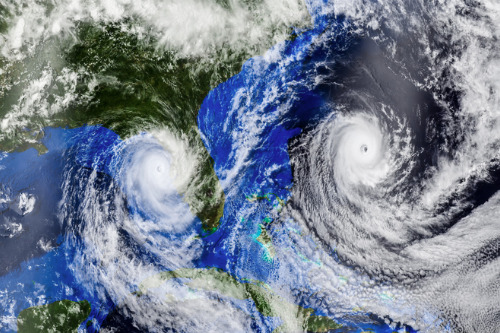

Millions of Americans along the Atlantic Coast are still recovering after Hurricane Isaias made landfall in North Carolina on Monday, August 03. The ninth named storm and second hurricane to make US landfall in 2020 caused widespread structural damage, as well as power outages for more than three million Americans on the East Coast. It was a hard pill to swallow for communities and businesses already stricken by the financial, social, and emotional impacts of the ongoing COVID-19 pandemic.
Isaias was a stark reminder for many that – pandemic or not – the US continues to face traditional weather exposures, and yet, many businesses fail to realize exactly how catastrophic a hurricane can be on top of a pandemic. As Justin Reese, executive risk management consultant at the Insurance Office of America (IOA) put it: “All of the typical standard protocols that you need to do are still in place, but the ancillary ability to get those things done may not exist.”
He gave the example of the coin shortage – businesses opting not to take hard currency because it might be “dirty” and aid in the transmission of COVID. He said: “Normally, when a storm is coming, people get emergency cash out so they can pay for fuel, food, and other necessities. If a hurricane causes power outages and businesses aren’t accepting cash, how are people going to pay for things?
“From a business standpoint, if there’s a power outage and they decide to reverse their stance on accepting cash, then they’ve got to think about their safety protocols. Are employees going to wear gloves? How are they storing the money? Are they going to have to sanitize it? Are they concerned about the transmission of COVID-19 through this money? And if they’re not going to accept cash, do they have a back-up point of sale device so that they can continue operating? For most businesses, the answer is probably ‘no,’ but it’s definitely something they need to think about.”
How they will accept payment is just one thing businesses need to think about as they juggle hurricane season and the pandemic. Another key thing for businesses to revisit and revise (ideally) prior to a storm is their vendor list in their emergency response plans. Businesses typically have vendors lined up ahead of time and then they forget about them until they need them. But, following a surge in demand, a lot of restoration businesses and clean-up agencies have shifted their mediation from storm to COVID-related cleaning. This causes concerns around the availability and prioritization of these vendors should a huge storm hit at the height of the pandemic.
“The next question is: did those vendors make it through the pandemic, and do they still exist? It’s important for businesses to make sure their vendor list is up-to-date,” Reese added. “Are they still in operation? Do they have employees? You could even look so deep as the CARES Act – if the vendor’s employees are low paid, they may prefer to collect the $600 unemployment because it’s more than they were making and they don’t want to subject themselves to the danger of COVID. And once they have the answer to these questions, and their vendor list is confirmed, does the business have the ability to pay vendors? There’s a whole laundry list for businesses to consider – and that’s just prepping in advance of a storm.”
Insurers, brokers and risk managers are all strong proponents of early planning. With COVID-19 in full throttle and nine named storms already registered for 2020, it’s a little late for companies to be making changes to their business continuity and emergency response plans now … but better late than never.
“This should have been done back in March or April because we’re in the middle of this now,” Reese told Insurance Business. “But there are still a lot of businesses scrambling to get this done – and for valid reasons. People almost forgot about hurricane season this year because they were so focused on the new challenges of COVID-19, trying to keep their businesses open and their staff healthy.
“The people that are typically handling your business continuity plans, your flood emergency response plans, and your organizational resilience - are they still working? Is your contact tree updated? I can say from working with a lot of large corporate entities that there are a lot of people that were in positions that would handle some of this that are no longer at that company because the company has downsized. So, the first point to consider is whether your strategic response team is still active. Have you updated that tree? Have you followed up them? If you have not already updated it, you’re behind the eight ball, and you need to do it now because we’ve already had nine named storms and experts are predicting double what we’ve averaged over the last 20 years.”
